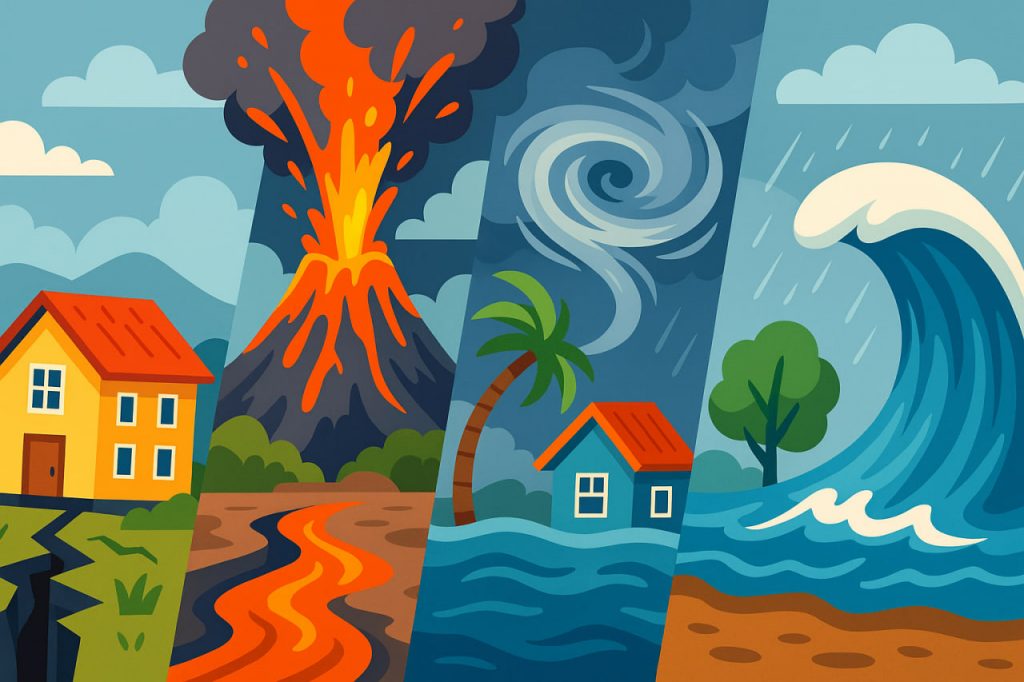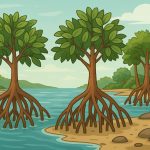Natural disasters are extreme events caused by natural processes of the Earth that can result in significant damage to life, property, and the environment. They are driven by geological, meteorological, hydrological, and biological forces. Understanding how they occur can help in predicting, preparing for, and mitigating their impact.
1. Geological Disasters
These are triggered by processes inside the Earth:
- Earthquakes occur when tectonic plates shift, releasing energy through seismic waves.
- Volcanic eruptions happen when magma, gas, and ash escape from beneath the Earth’s crust.
- Landslides occur when gravity causes rock, earth, or debris to move down a slope, often triggered by heavy rain or earthquakes.
2. Meteorological Disasters
Caused by atmospheric conditions:
- Hurricanes, cyclones, and typhoons form over warm ocean waters, powered by heat and moisture.
- Tornadoes arise from severe thunderstorms when rotating air columns form funnels.
- Blizzards occur when strong winds combine with heavy snowfall and freezing temperatures.
3. Hydrological Disasters
Linked to the movement and distribution of water:
- Floods occur when rivers overflow, heavy rains fall, or coastal surges happen during storms.
- Tsunamis are massive sea waves generated mainly by underwater earthquakes, landslides, or volcanic activity.
- Droughts result from prolonged lack of precipitation, reducing water supply.
4. Biological Disasters
These involve living organisms:
- Epidemics and pandemics spread rapidly among populations.
- Invasive species can damage ecosystems, agriculture, and native species.
5. Human Impact and Preparedness
Natural disasters can devastate infrastructure, economies, and communities. Early warning systems, proper urban planning, education, and environmental protection reduce risks. International cooperation and rapid response teams are vital in minimizing casualties and rebuilding affected areas.
Glossary
- Tectonic plates: Large slabs of Earth’s lithosphere that move and interact at their boundaries.
- Seismic waves: Energy waves that travel through the Earth during an earthquake.
- Tsunami: A large ocean wave caused mainly by seismic activity under the sea.


